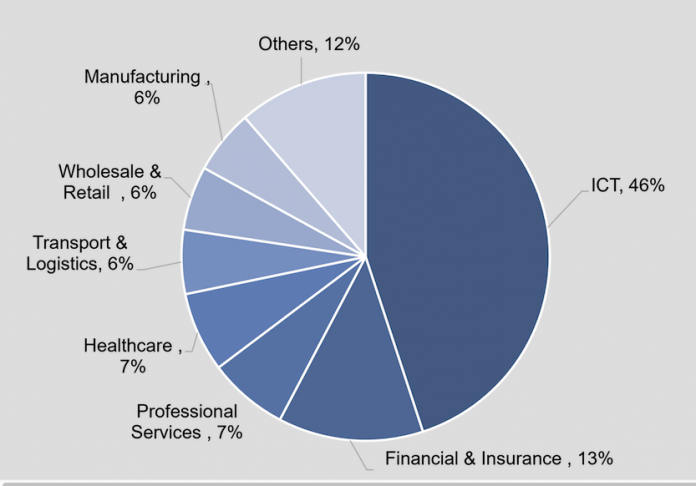The labour market does not fully meet the digital needs of local companies according to a Digital Market Survey conducted by Strategic Change Management Office (SCMO) and Social & Economic Research Initiative (SERI).
“On average, only 4.8% of respondents felt that the existing labour market fully meets their digital talent needs,” says the Survey.
However, the survey identified several key elements that would help Malaysia in its strategy to build a steady pool of digital talents to support the national digital transformation agenda under the MyDIGITAL aspiration.
The survey was organised by the Strategic Change Management Office (SCMO) of the Economic Planning Unit (EPU) and the Social & Economic Research Initiative (SERI), in collaboration with Microsoft Malaysia
The survey had 70 respondents across Micro, Small and Medium Enterprises and large companies, representing a variety of sectors.
Around 46% of the companies were from the technology sector, 13% from the Financial & Insurance sector, and 7% from both Healthcare and Professional Services industries.
Respondents identified the top two barriers to having adequate and sufficient digital talent as: skills gaps in the local labour market and inability to attract specialised talent.
Big Data Analytics and Digital Marketing were the digital skills most sought after by employers, followed by Artificial Intelligence, Data Science, Cybersecurity, and Cloud Computing.
Critical thinking and analysis, analytical thinking and innovation, and collaboration topped the list of soft skills, followed by English proficiency, and communication.
According to survey respondents, the following are the tech roles which tend to remain vacant for more than three months: Big Data Analytics, Data Science, Cybersecurity, Artificial Intelligence, Cloud Computing.









